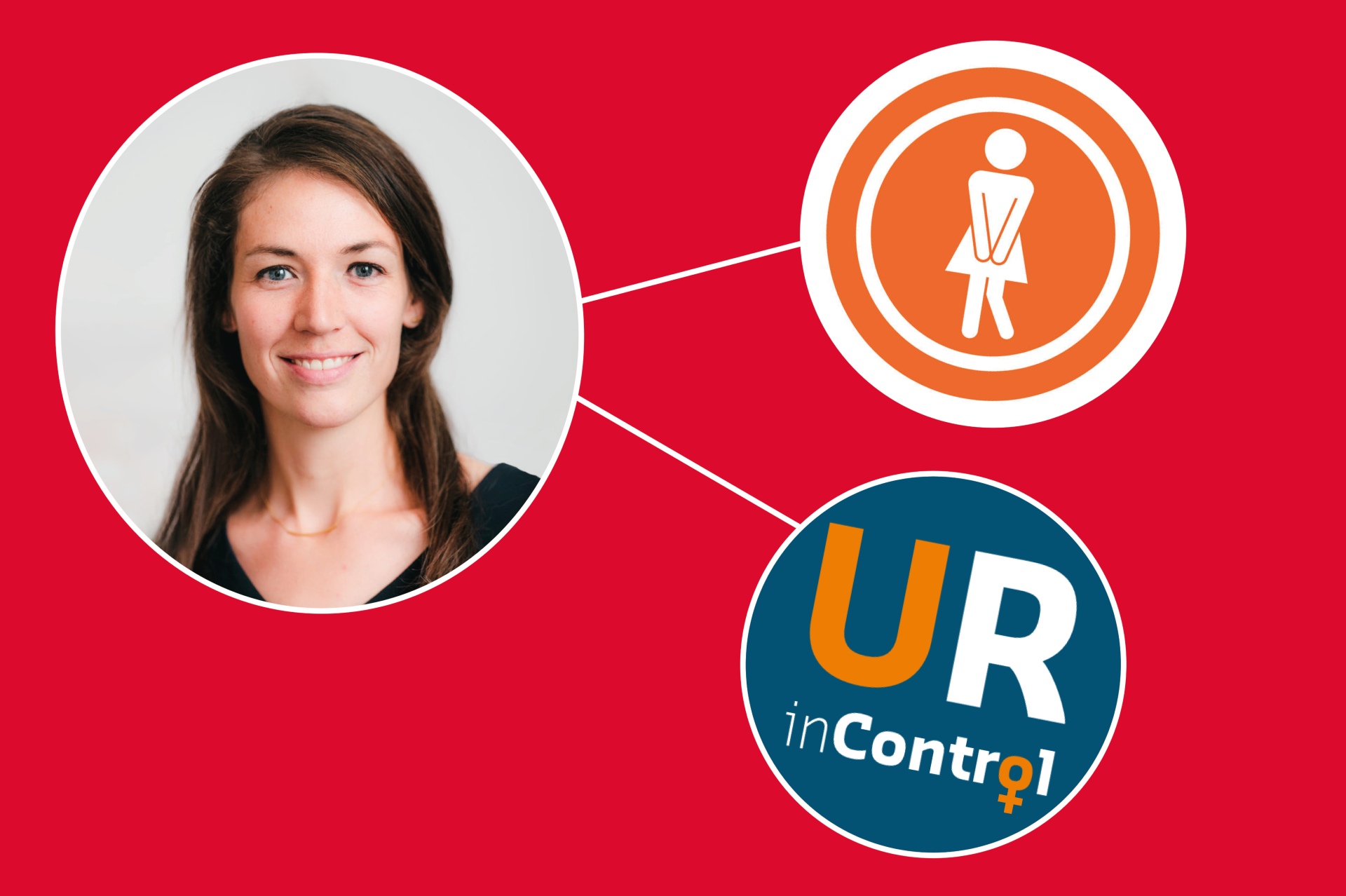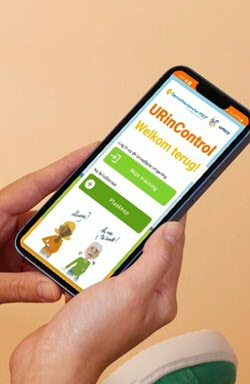Science for Society | This app helps thousands of women with urinary incontinence
Scientists work day in, day out to find solutions to a variety of problems. From new medicines to smart agricultural techniques; our research helps society move forward. But this is not always immediately visible. In the Science for Society series, we share stories about impactful innovations, products, and ideas to show that science works!
Text: Thomas Vos, Corporate Communicatie UG
More than half of all adult women is dealing with urinary incontinence, and a quarter of them are severely hindered by it. Anne Loohuis of the UMCG/Faculty of Medical Sciences developed a science-based app offering information and exercises to help women get their urinary incontinence under control.

Huge impact on quality of life, high costs for society, and intensive treatment for both patients and care providers; according to Loohuis, urinary incontinence in women has major consequences. For this reason, she started a study in 2014 into the effectiveness of apps that claim to be able to help patients. Loohuis: ‘Even then, there were hundreds of apps for urinary incontinence but no research had been done yet into their efficacy. It’s important to know though, especially since the government is now focusing more on digital healthcare.’
URinControl
In order to test this, Loohuis developed an app that should be able to treat various forms of urinary incontinence in women: URinControl. It works like this: women with urinary incontinence are given their own tailored training programme. The app teaches them exercises that help to postpone the urge to pee in urge incontinence and with urinary incontinence when you suddenly feel that you have to pee, and to strengthen your pelvic floor muscles to help with stress incontinence, urinary incontinence when exercising but also when coughing or laughing. The app gives women insight into their progress, which they can subsequently share with their GP or physiotherapist. Practitioners are even able to access the app remotely.
App
After developing the app, Loohuis approached two groups of women with urinary incontinence to test the app’s functionality: one group that receives a ‘regular’ treatment from their GP and one group that downloads the app. The result? After four and twelve months, both groups had received equally good care. Loohuis: ‘We saw a decrease in the urinary incontinence and an improvement in the quality of life. It was a significant difference compared to when the study started, which proved that the app is actually relevant to healthcare, because it can save a lot of money. Roughly speaking, about €160 per patient per year.’

Low threshold
Thanks to the great results, Loohuis and her team were able to secure a ZonMw grant in 2021 to refine the app and offer it for free. Loohuis: ‘That was our goal, to make sure that there would be a low threshold for everyone to use it.’ When the app was ready, it was advertised on Thuisarts.nl—an independent website for health information—and in national and international specialist literature for, for example, GPs. Loohuis: ‘This caused the number of users to grow bit by bit. But it still wasn’t enough.’
€5 million saved
In 2023, an implementation grant from ZonMw followed. ‘With that money, we‘ve been able to campaign for two years now, by actively reaching out to care providers, private and societal parties who are concerned with urinary incontinence. And we’ve come up with a challenge for users to share it with women in their own circles,’ says Loohuis. The results speak for themselves. Loohuis: ‘By now, we have more than 31,000 app users. This is equal to a saving of around €5 million.’
URinControl is also one of the three apps in the project Digital Health Apps from Zorgverzekeraars Nederland (umbrella organization of 11 health insurers in the Netherlands), a pilot held in 2025 ensuring sustainable funding and implementation of health apps in healthcare.
Important insights
In addition, the app offers important insights in the long term. Loohuis: ‘The app can tell us so much about the research into and the development and implementation of digital healthcare. That makes the app a great starting point for all sorts of questions around the digitization of healthcare, both from the research field and the healthcare practice.’
If you are interested, you can download the app in the Google Play Store or the App Store . You can go to the website for more information.
Do you want to know more about Science for Society? Check out the overview page for the previous editions.
More news
-
15 September 2025
Successful visit to the UG by Rector of Institut Teknologi Bandung
